Find Help
More Items From Ergsy search
-
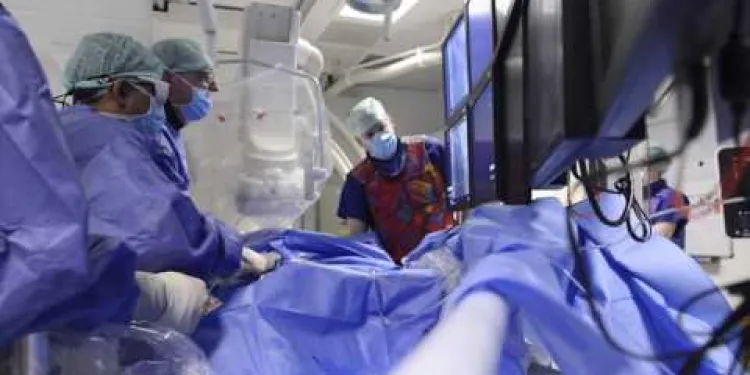
What is it like having a Transcutaneous Aortic Valve Implant (TAVI)?
Relevance: 100%
-

What is heart valve disease?
Relevance: 47%
-
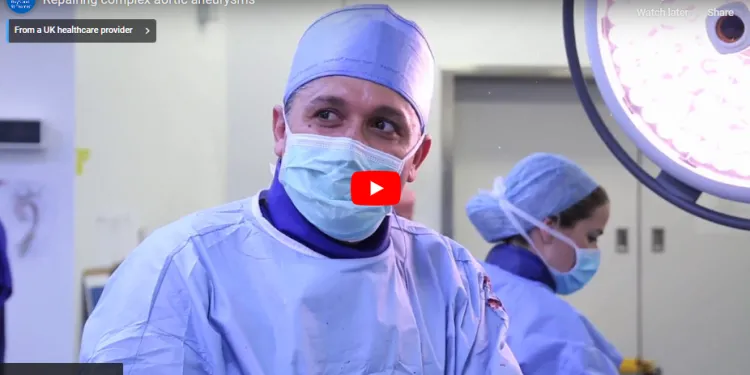
Repairing complex aortic aneurysm
Relevance: 33%
-
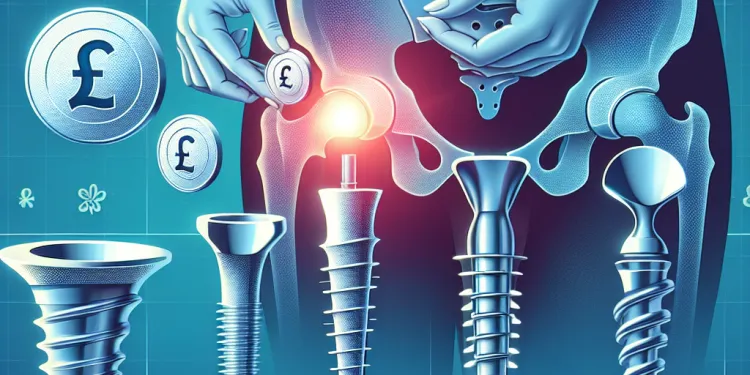
Are there different types of hip implants?
Relevance: 30%
-

Can I get dental implants on the NHS?
Relevance: 28%
-

Can I have a mammogram if I have breast implants?
Relevance: 27%
-
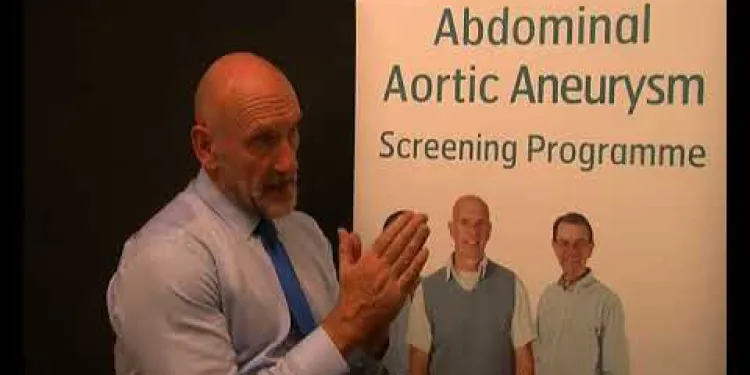
AAA (Abdominal aortic aneurysm) screening
Relevance: 27%
-
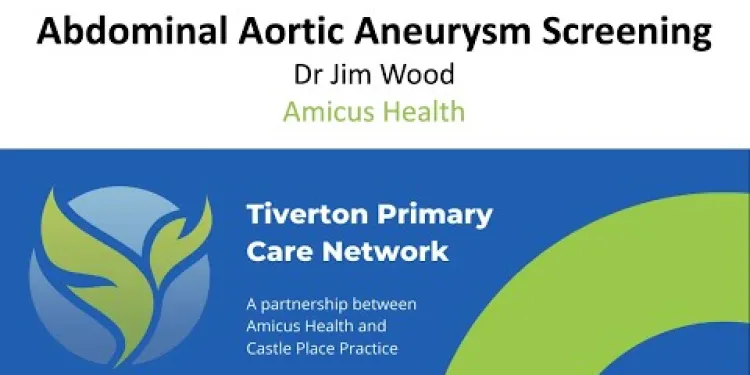
NHS Abdominal Aortic Aneurysm (AAA) Screening
Relevance: 26%
-
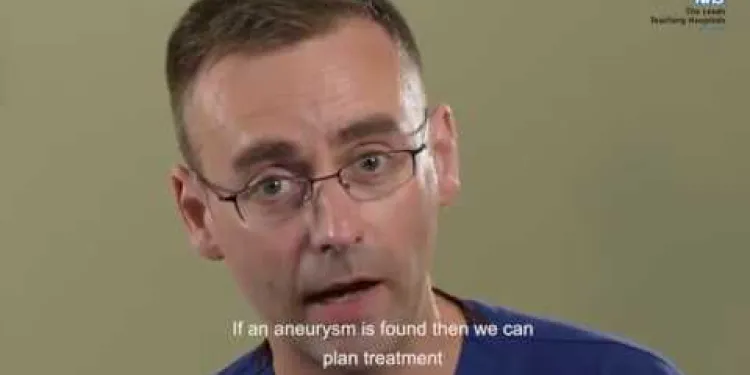
Abdominal Aortic Aneurysm (AAA) screening programme
Relevance: 26%
-

Eddie's Story - Abdominal Aortic Aneurysm (AAA) Screening
Relevance: 25%
-

Your abdominal aortic aneurysm (AAA) screening appointment
Relevance: 25%
-

Survivor of an Abdominal Aortic Aneurysm rupture appeals for men to take up NHS Screening Programme.
Relevance: 22%
-

How long do hip replacement implants last?
Relevance: 20%
-

How is jaundice in newborns diagnosed?
Relevance: 17%
-

What causes heart failure?
Relevance: 17%
-

What is Breast augmentation?
Relevance: 13%
-

How does the new Sleep Apnea Chip work?
Relevance: 11%
-
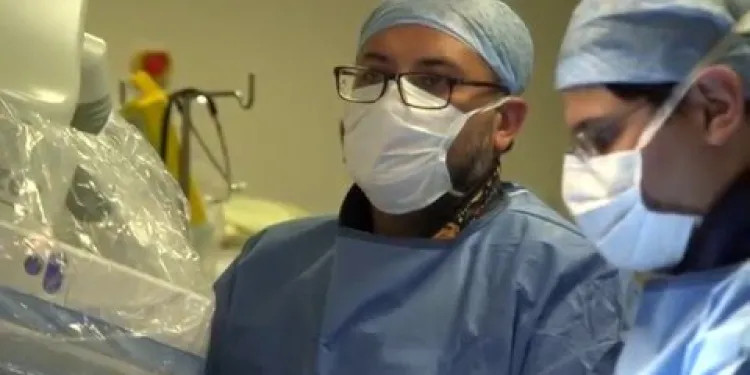
Having a pacemaker
Relevance: 10%
-
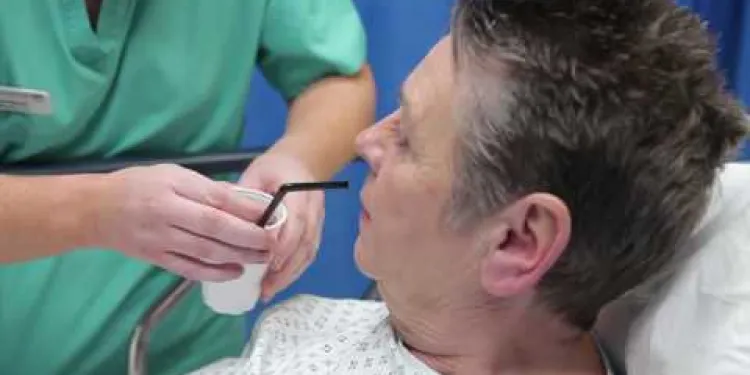
Hip replacement
Relevance: 10%
-

What techniques are used for hair transplants in Turkey?
Relevance: 10%
-

Am I eligible to try the new sleep apnea chip?
Relevance: 10%
-

What are the different types of defibrillators?
Relevance: 9%
-

My baby has a hearing loss - what next?
Relevance: 9%
-
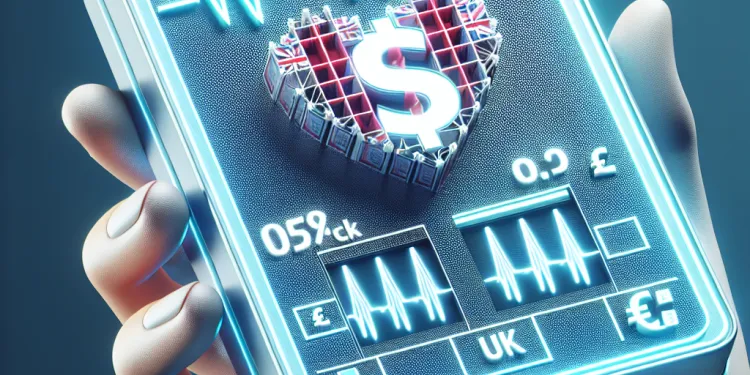
What is a defibrillator?
Relevance: 9%
-

Heart failure introduction
Relevance: 9%
-

What is the difference between an AED and an ICD?
Relevance: 8%
-

Cardiac Physiology Walkthrough
Relevance: 8%
-
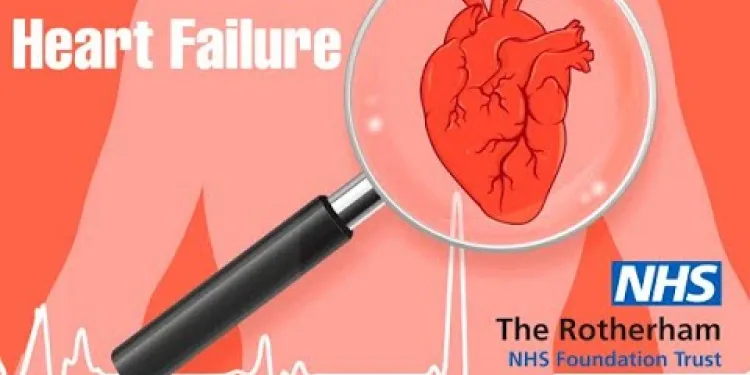
Heart Failure : Heart failure that cannot pump
Relevance: 8%
-

How much does hip replacement surgery cost in the UK?
Relevance: 8%
-
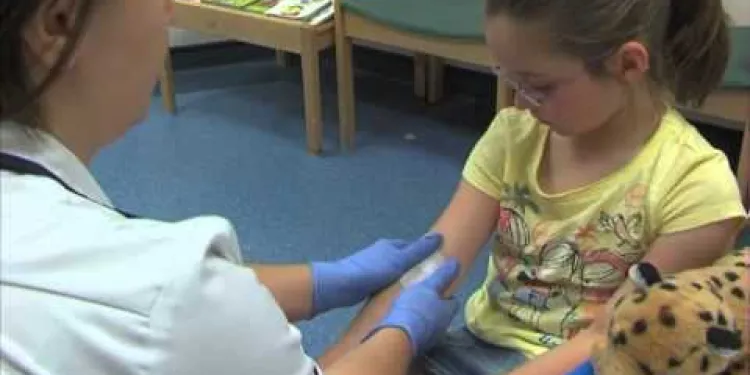
I'm having an MRI scan
Relevance: 8%
-
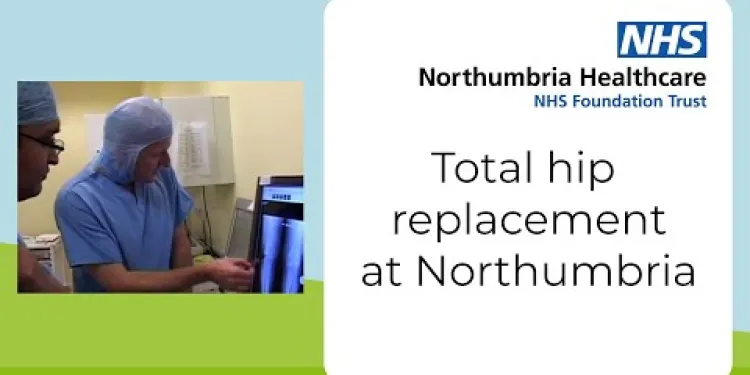
Total hip replacement at Northumbria Healthcare
Relevance: 8%
-

How many embryos are usually transferred in IVF?
Relevance: 8%
-
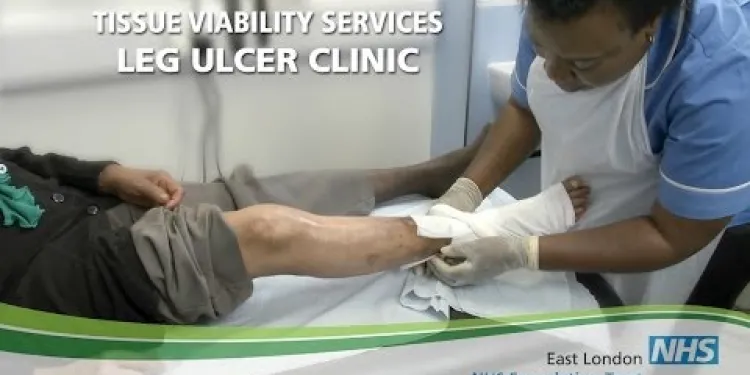
Leg ulcer see Venous leg ulcer
Relevance: 7%
-
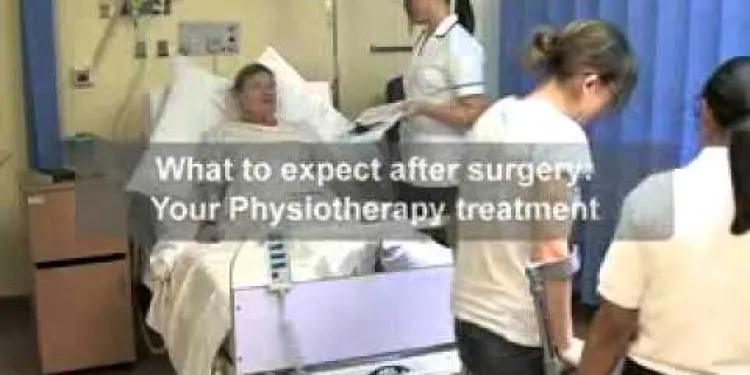
Total hip replacement
Relevance: 7%
-

What does water infrastructure maintenance involve?
Relevance: 7%
-

Do defibrillators have any side effects?
Relevance: 7%
-

What are the main steps in an IVF cycle?
Relevance: 7%
-

What happens if a water main bursts?
Relevance: 7%
-

Will my insurance cover Turkey Teeth?
Relevance: 7%
-

What is a Defibrallator?
Relevance: 7%
What is it like having a Transcutaneous Aortic Valve Implant (TAVI)?
Understanding TAVI
Transcutaneous Aortic Valve Implantation, or TAVI, is a minimally invasive procedure aimed at treating aortic stenosis. Aortic stenosis is a condition characterised by the narrowing of the aortic valve, which restricts blood flow from the heart to the rest of the body. In the United Kingdom, TAVI is increasingly recommended for patients who are at high risk or unsuitable for traditional open-heart surgery.The Procedure
The TAVI procedure involves inserting a new valve within the existing, narrowed aortic valve. A catheter is typically inserted through the femoral artery in the groin, or alternatively through the chest or the arm. This catheter guides the new valve to the heart. Because TAVI is less invasive than open-heart surgery, it generally results in quicker recovery times and reduced hospital stays.Preparing for TAVI
Prior to the procedure, patients undergo several assessments including echocardiograms, CT scans, and blood tests to evaluate suitability and plan the procedure meticulously. Comprehensive discussions with cardiologists and healthcare providers help patients understand the procedure, potential risks, and the expected outcomes.During the Hospital Stay
The TAVI procedure itself may last between one to two hours and is often performed under local anesthesia with conscious sedation, although general anesthesia may also be used. Most patients are required to stay in the hospital for a few days post-procedure for observation and to ensure there are no immediate complications such as bleeding, infection, or issues with the new valve.Recovery and Aftercare
Recovery from a TAVI procedure typically involves a shorter hospital stay compared to traditional valve replacement surgery. Patients may experience mild discomfort or bruising at the catheter insertion site. It's crucial to follow all post-procedural care instructions, including recommended pain management, activity restrictions, and attending follow-up appointments. Cardiac rehabilitation may also be advised to support physical recovery and heart health.Life After TAVI
Most patients experience significant improvement in symptoms such as shortness of breath, chest pain, and fatigue, leading to a better quality of life. Regular heart function monitoring will be necessary to ensure the new valve is working effectively. Many can return to their everyday activities within a few weeks, but it’s important to discuss with your healthcare provider the timeline for resuming specific activities, including work and exercise.Final Thoughts
TAVI offers a promising alternative for those with severe aortic stenosis, particularly for patients who are at increased risk with conventional surgery. With advancements in medical technology, TAVI continues to improve, providing a safer and efficient means to manage heart health. If you or a loved one are considering TAVI in the UK, consulting with a specialized cardiologist will provide the best insights tailored to your specific medical needs.What is it like having a Transcutaneous Aortic Valve Implant (TAVI)?
Understanding TAVI
TAVI stands for Transcutaneous Aortic Valve Implantation. It helps people with a heart problem called aortic stenosis. This means the aortic valve in the heart is too narrow. The narrow valve makes it hard for blood to flow from the heart to the body. In the UK, doctors suggest TAVI for patients who cannot have open-heart surgery.The Procedure
During TAVI, doctors put a new valve in the heart. They use a small tube called a catheter to guide the new valve to the heart. The catheter usually goes in through the leg, chest, or arm. TAVI is not as hard on the body as open-heart surgery, so people often get better faster and spend less time in the hospital.Preparing for TAVI
Before TAVI, doctors do tests like heart scans and blood tests. This helps them decide if TAVI is right for the patient. Patients talk with doctors to learn about how TAVI works and any risks involved.During the Hospital Stay
The TAVI procedure takes about 1 to 2 hours. Patients might be awake but relaxed, or they might be asleep during the procedure. After TAVI, most people stay in the hospital for a few days. Doctors watch to make sure everything is okay and there are no problems like bleeding or infection.Recovery and Aftercare
After TAVI, patients usually spend less time in the hospital than with other heart surgeries. There might be a little pain or bruising where the catheter went in. It is very important to follow the doctor's instructions after the procedure. This includes taking care of the area, managing pain, and going to follow-up appointments. Sometimes, patients do special exercises to help their heart get stronger.Life After TAVI
After TAVI, many people feel better. Symptoms like shortness of breath and tiredness often get better. Patients usually get back to daily activities in a few weeks. It is important to talk with the doctor about when to return to work and exercise.Final Thoughts
TAVI can be a good option for people with aortic stenosis who cannot have regular surgery. With new technology, TAVI gets better and safer all the time. If you are thinking about TAVI, talk to a heart doctor. They will give advice that’s right for you.Frequently Asked Questions
What is a Transcutaneous Aortic Valve Implant (TAVI)?
A TAVI is a minimally invasive procedure used to replace a diseased aortic valve with a new one, improving blood flow and reducing symptoms like shortness of breath and chest pain.
Who is a candidate for TAVI?
Candidates for TAVI are typically patients with severe aortic stenosis who are considered high-risk for open-heart surgery, often due to age or other medical conditions.
How long does the TAVI procedure take?
The TAVI procedure typically takes 1 to 2 hours, although the total time in the hospital may be longer due to pre-procedure preparation and post-procedure monitoring.
Is the TAVI procedure painful?
Patients are usually sedated or under general anaesthesia during the procedure, so they do not feel pain. However, some discomfort at the catheter insertion site may be experienced afterward.
What is the recovery time after a TAVI procedure?
Recovery time varies, but many patients can resume normal activities within a few days to a week. Full recovery may take a few weeks.
Are there any risks or complications associated with TAVI?
As with any medical procedure, there are risks, which may include bleeding, stroke, vascular complications, and infection. However, these risks are typically lower compared to open-heart surgery.
What kind of follow-up care is needed after TAVI?
Patients will need regular follow-up appointments with their cardiologist to monitor the new valve's function and overall heart health. This often includes echocardiograms and other tests.
Can I drive after having a TAVI?
Patients are generally advised to avoid driving for at least one week after the procedure, but this can vary based on individual recovery and doctors' advice.
Will I need to take medication after a TAVI procedure?
Yes, patients may need to take blood thinners and other medications to prevent blood clots and ensure heart health following the procedure.
How effective is TAVI compared to traditional valve replacement surgery?
TAVI has been shown to be highly effective and a good alternative for patients who are not candidates for traditional valve replacement surgery due to higher risks associated with open-heart surgery.
What is the lifespan of a TAVI valve?
TAVI valves are designed to last for many years, but their exact lifespan can vary. Regular follow-ups are important to monitor valve performance.
Is TAVI available on the NHS?
Yes, TAVI is available on the NHS for patients deemed suitable by their healthcare provider, usually depending on the severity of their condition and other health factors.
Can TAVI be performed more than once if needed?
In some cases, a repeat TAVI procedure may be possible, but this depends on individual circumstances and should be discussed with a cardiologist.
Will I need cardiac rehabilitation after TAVI?
Cardiac rehabilitation is often recommended to help patients regain strength and improve cardiovascular health after the procedure.
How much activity can I do after a TAVI procedure?
Patients are encouraged to gradually resume regular activities, but strenuous activities should be avoided until cleared by a healthcare professional.
What is a Transcutaneous Aortic Valve Implant (TAVI)?
A Transcutaneous Aortic Valve Implant, or TAVI, is a way to help your heart. If your heart valve is not working well, doctors can use TAVI to put in a new one without surgery.
Doctors put a new valve into your heart using a small tube. This can help you breathe better and feel stronger.
If you need help with reading, you can ask someone to read it with you or use an app that reads text aloud.
A TAVI is a simple operation. It helps fix a sick heart valve without a big surgery. TAVI helps the blood flow better. It can help you breathe easier and stop chest pain.
Who can have TAVI?
TAVI is a treatment for people with heart problems. Doctors use it to help when the heart valves are not working well.
People who might get TAVI usually have:
- Heart trouble that makes them very tired or short of breath.
- Trouble doing daily activities because of heart issues.
- A doctor says their heart valve needs fixing, but surgery is too risky.
If you want to know if TAVI is right for you, talk to your doctor. They will explain and help you understand. You can also ask a friend or family member to come with you to the doctor. They can help you remember what the doctor says.
People who might need TAVI usually have a serious heart problem called aortic stenosis. They can't have open-heart surgery because it is too risky for them. This might be because they are older or have other health problems.
How long does the TAVI procedure take?
The TAVI procedure usually takes 1 to 2 hours. It is a heart operation to help you. Ask a doctor if you have questions. You may feel sleepy during the procedure.
You can use tools like a picture dictionary to help understand the words.
The TAVI operation usually takes 1 to 2 hours. But you might need to stay in the hospital longer. This is because doctors and nurses need to get you ready before the operation and watch you carefully after it.
Does TAVI hurt?
Doctors give patients medicine so they sleep and do not feel pain during the procedure. Afterward, the place where the doctor puts the small tube (catheter) might feel a bit uncomfortable.
How long does it take to get better after a TAVI heart operation?
Getting better can take different amounts of time for each person. Most people can start doing their usual things again in a few days or up to a week. It might take a few weeks to feel all better.
What problems can happen with TAVI?
All medical treatments can have risks. This means things that might go wrong. Some risks are:
- Bleeding
- Stroke (this means a problem in the brain)
- Blood vessel problems
- Infection (when germs make you sick)
But these risks are usually smaller than the risks of open-heart surgery, which is a big operation on the heart.
If you find reading hard, you can use tools that read the text out loud. You can also ask someone to explain things to you.
What care do you need after TAVI?
Patients will need to see their heart doctor often to check how the new heart valve is working. The doctor will look at their heart health using special tests like echocardiograms.
Can I drive after having heart surgery?
If you had a TAVI, you might be curious about driving. TAVI is a type of heart surgery. After this surgery, doctors usually say: wait before driving.
Here are steps to help:
- Ask your doctor when it is safe to drive.
- Get someone to drive you while you heal.
- Use a calendar to mark the day you can drive again.
Remember, it’s important to listen to your doctor to stay safe.
People usually should not drive for one week after the procedure. But, sometimes doctors might say it's okay to drive sooner or they might want you to wait longer. Always listen to what your doctor says.
Will I need to take medicine after a TAVI procedure?
If you have had a TAVI procedure, you might need to take medicine. Medicine can help you feel better and protect your heart.
Ask your doctor about the right medicine for you. They will tell you what medicine you need and how much to take.
If you have questions, always ask your doctor or nurse. They are there to help you.
Yes, after the treatment, people might need to take medicines that make the blood thinner. This stops blood clots. They might also take other medicines to keep the heart healthy.
Which works better: TAVI or regular heart valve surgery?
TAVI is a good way to help people who cannot have regular heart surgery because it's too risky. It's safe and works very well for them.
How long does a TAVI valve last?
TAVI valves are made to work for a long time. But how long they last can be different. It's important to see your doctor often to check how well the valve is working.
Can you get TAVI on the NHS?
TAVI is a treatment for heart problems.
Yes, the NHS offers TAVI to people who need it.
If you need help understanding this, you can:
- Ask a doctor or nurse for more information.
- Speak to a family member or friend.
- Use pictures or videos to learn about TAVI.
Yes, TAVI is available through the NHS. Doctors decide if it is right for the patient. They look at how serious the patient's health problem is and other health things.
Can you have TAVI more than one time if needed?
Yes, you can have TAVI more than once if your doctor thinks it's the best choice. TAVI stands for Transcatheter Aortic Valve Implantation. It helps your heart work better.
Doctors will check your heart to see if you need another TAVI. They might use special pictures, called scans, to look at your heart.
If you are worried, you can talk to your doctor. They can explain what is best for you.
It might help to write down questions before you see your doctor. You can also bring a friend or family member with you to the appointment.
Sometimes, doctors can do a second TAVI, but it depends on each person. You should talk to your heart doctor about it.
Do I need help for my heart after TAVI?
TAVI is a treatment for your heart. It can make your heart work better.
After TAVI, you might need special help. This help is called cardiac rehabilitation.
Cardiac rehabilitation helps your heart get strong. It also helps you feel better.
If you have TAVI, your doctor will tell you if you need this help.
It is important to listen to your doctor.
Using reminders or getting a friend to join can make this process easier for you.
Heart rehab helps people get strong again and make their hearts healthier after an operation.
How much can I move after a TAVI?
A TAVI is a heart procedure. After this, you need to rest. Start by moving a little. As you feel better, you can move more.
Ask your doctor about what you can do. Your doctor will tell you what is safe. You can use a planner to track your activity. An online app or a calendar can help you remember to take it slow.
Always listen to your body. If you feel tired, stop and rest. It is okay to ask for help from family or friends.
Patients are advised to slowly start doing normal things again. But do not do hard activities until a doctor says it is okay.
Useful Links
This website offers general information and is not a substitute for professional advice.
Always seek guidance from qualified professionals.
If you have any medical concerns or need urgent help, contact a healthcare professional or emergency services immediately.
- Ergsy carfully checks the information in the videos we provide here.
- Videos shown by Youtube after a video has completed, have NOT been reviewed by ERGSY.
- To view, click the arrow in centre of video.
- Most of the videos you find here will have subtitles and/or closed captions available.
- You may need to turn these on, and choose your preferred language.
- Go to the video you'd like to watch.
- If closed captions (CC) are available, settings will be visible on the bottom right of the video player.
- To turn on Captions, click settings .
- To turn off Captions, click settings again.
More Items From Ergsy search
-

What is it like having a Transcutaneous Aortic Valve Implant (TAVI)?
Relevance: 100%
-

What is heart valve disease?
Relevance: 47%
-

Repairing complex aortic aneurysm
Relevance: 33%
-

Are there different types of hip implants?
Relevance: 30%
-

Can I get dental implants on the NHS?
Relevance: 28%
-

Can I have a mammogram if I have breast implants?
Relevance: 27%
-

AAA (Abdominal aortic aneurysm) screening
Relevance: 27%
-

NHS Abdominal Aortic Aneurysm (AAA) Screening
Relevance: 26%
-

Abdominal Aortic Aneurysm (AAA) screening programme
Relevance: 26%
-

Eddie's Story - Abdominal Aortic Aneurysm (AAA) Screening
Relevance: 25%
-

Your abdominal aortic aneurysm (AAA) screening appointment
Relevance: 25%
-

Survivor of an Abdominal Aortic Aneurysm rupture appeals for men to take up NHS Screening Programme.
Relevance: 22%
-

How long do hip replacement implants last?
Relevance: 20%
-

How is jaundice in newborns diagnosed?
Relevance: 17%
-

What causes heart failure?
Relevance: 17%
-

What is Breast augmentation?
Relevance: 13%
-

How does the new Sleep Apnea Chip work?
Relevance: 11%
-

Having a pacemaker
Relevance: 10%
-

Hip replacement
Relevance: 10%
-

What techniques are used for hair transplants in Turkey?
Relevance: 10%
-

Am I eligible to try the new sleep apnea chip?
Relevance: 10%
-

What are the different types of defibrillators?
Relevance: 9%
-

My baby has a hearing loss - what next?
Relevance: 9%
-

What is a defibrillator?
Relevance: 9%
-

Heart failure introduction
Relevance: 9%
-

What is the difference between an AED and an ICD?
Relevance: 8%
-

Cardiac Physiology Walkthrough
Relevance: 8%
-

Heart Failure : Heart failure that cannot pump
Relevance: 8%
-

How much does hip replacement surgery cost in the UK?
Relevance: 8%
-

I'm having an MRI scan
Relevance: 8%
-

Total hip replacement at Northumbria Healthcare
Relevance: 8%
-

How many embryos are usually transferred in IVF?
Relevance: 8%
-

Leg ulcer see Venous leg ulcer
Relevance: 7%
-

Total hip replacement
Relevance: 7%
-

What does water infrastructure maintenance involve?
Relevance: 7%
-

Do defibrillators have any side effects?
Relevance: 7%
-

What are the main steps in an IVF cycle?
Relevance: 7%
-

What happens if a water main bursts?
Relevance: 7%
-

Will my insurance cover Turkey Teeth?
Relevance: 7%
-

What is a Defibrallator?
Relevance: 7%


